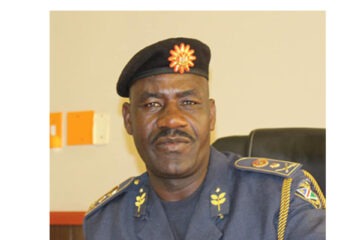Renthia Kaimbi
Families of victims of the Lubango dungeons say the death of former Namibia Defence Force (NDF) chief Solomon “Jesus” Hawala marks a time for judgement on his actions.
Some victims say they will not forgive him and believe he had much to answer for but took it to his grave.
Hawala died on Monday. His legacy is tied to allegations from the liberation struggle era.
As Swapo’s deputy army commander and chief of security in the 1980s, he oversaw detainee camps in Lubango, Angola, where thousands of Swapo members and civilians were imprisoned on suspicion of spying for apartheid South Africa.
Survivors and historians accuse him of directing torture, executions, and disappearances, earning him the nickname “Butcher of Lubango”.
Several victims, including University of Warwick Chancellor Bience Gawanas, have spoken about their encounters with Hawala.
She said she carried the pain for 36 years after she was detained.
Gawanas said she met him in Lubango, Angola, where she was detained and later at a military base in Grootfontein, where she refused to shake his hand.
“I will never celebrate his death, with all due respect to the family. But I can’t help feeling that he had so much to answer for. There can be no forgiveness without apology nor reconciliation,” she said.
An 89-year-old Namibian mother died in June 2025 still hoping her son, Ivan Desmond Rickerts, was alive. Ivan had left Namibia in January 1982 to join Swapo in exile.
“The judgement for what he did will now be fulfilled,” said Albert Rickerts, a family member of one of the Lubango victims.
‘Lubango dungeons’ refers to the killing and torture of Swapo members and refugees accused of spying for the South African regime.
About 1,000 Swapo members were held for over nine years in these dungeons.
Albert said his mother’s hope endured until her death, even after the family learnt the truth.
Between 1999 and 2005, he investigated his brother’s disappearance. He said Ivan was branded a South African spy upon reporting to Swapo headquarters in Lusaka, Zambia — a common label at the time.
“I went on a six-year quest to find out what happened to Ivan, mostly because I saw and endured the pain of my mother, who refused to accept death without my brother’s body,” he said.
According to Albert, Ivan was tortured for more than four years in detention camps in Lubango. After a failed escape in December 1986, both his legs were amputated.
He survived for three more years before being executed with over 250 other detainees on 8 March 1989.
Albert visited the remains of the Lubango dungeons in 2005. He said his family sought no compensation, only answers.
“My mother left us in June, still tormented by not giving her son a proper burial. That’s how her chapter of grief, lasting nearly four decades, ended,” he said.
A 1989 documentary, Call Them Spies, detailed Hawala’s role in the arrest and abduction of Namibians. Witnesses said his nickname “Jesus” came from his position to decide “who would live and who would die” in Lubango.
On Hawala’s death, Albert said, “The judgement for what he did will now be fulfilled.”




